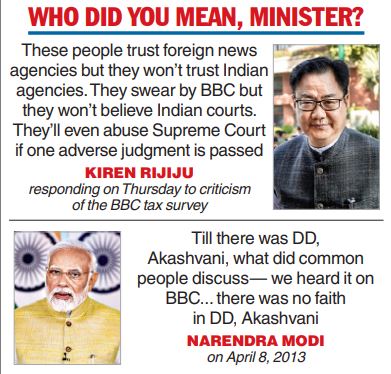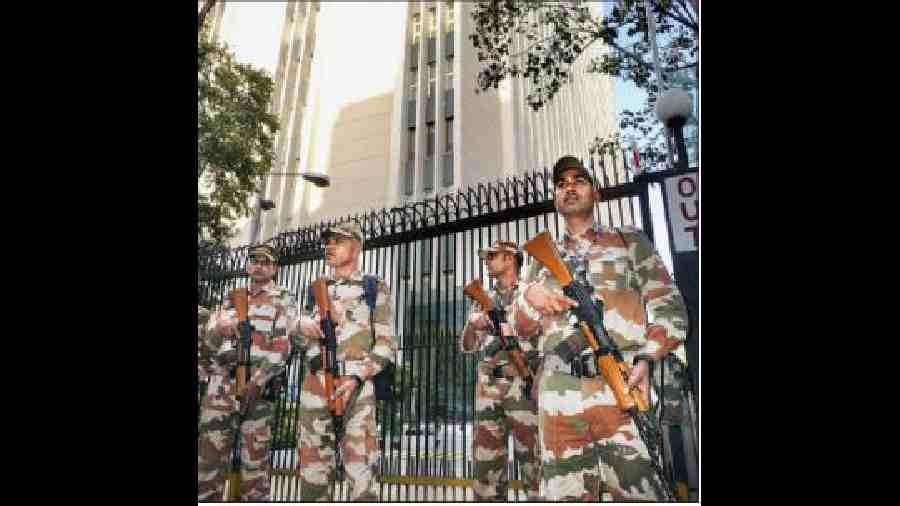A veteran British editor said the income-tax department’s action against the BBC amounted to Soviet-style “intimidation”, as the tax “survey” on the broadcaster’s Delhi and Mumbai offices ended after three days.
The BBC said in a statement late on Thursday night that the income tax authorities had left its offices in Delhi and Mumbai. The officials had arrived at 11.30am on Tuesday.
The broadcaster said it “will continue to report without fear or favour”.
In an interview with Karan Thapar of The Wire, Lionel Barber, former editor of the Financial Times, said the action against the BBC did “look like a vendetta” and was “certainly intimidation”. He said it was “reminiscent of the Soviet Union”.

Barber said the tax survey, coming weeks after the BBC aired a two-part documentary critical of Narendra Modi, did raise questions about the timing. “The optics of such raids are pretty bad,” he said.
The BBC said in a statement it “will continue to cooperate with the authorities and hope matters are resolved as soon as possible”.
“We are supporting staff — some of whom have faced lengthy questioning or been required to stay overnight — and their welfare is our priority,” a BBC spokesperson said.
A tax department spokesperson said investigators had cloned data from digital devices considered important, but did not confiscate any.
They only recorded statements from employees whose roles were crucial, primarily staff from finance, content development and other production-related departments, the spokesperson said.
The BBC said its output was now “back to normal” and reiterated its previous statement that it remained committed to serving its audiences in India and beyond.
“The BBC is a trusted, independent media organisation and we stand by our colleagues and journalists who will continue to report without fear or favour,” the spokesperson added.
Several media organisations and rights groups have criticised the search at the BBC. “We demand that this intimidation be stopped and journalists are left to do their jobs without fear or favour,” the Mumbai Press Club said in a statement.
Sources told The Telegraph on Thursday that at least 12 employees had been made to stay back at the BBC’s Delhi office
Sources told this newspaper that most of the BBC employees who had been made to stay back were from finance and corporate affairs.
“They (officials) asked some of us to open their laptop and hand in phones and then handed it back,” a source told Reuters, adding that the owners of the devices were asked for the access codes. A second source gave a similar account.
Barber told Thapar he had seen the first part of the BBC documentary, India: The Modi Question, but not the second.
The first part questions Modi’s role as Gujarat chief minister during the 2002 riots, and the second examines some of his government’s decisions since 2019.
Asked how he evaluated the first part, Barber said it had given an opportunity to Modi supporters and BJP members to put forth their side of the story.
Asked if it was journalistically proper on the BBC’s part to raise the issue of the 2002 Gujarat killings 21 years after they had happened, he said that “nothing is off limits”
The Congress has said the action against the BBC amounts to an “undeclared emergency”, and tied it to the documentary. The government has dismissed the documentary as hostile propaganda and got YouTube and Twitter to block access to it.











